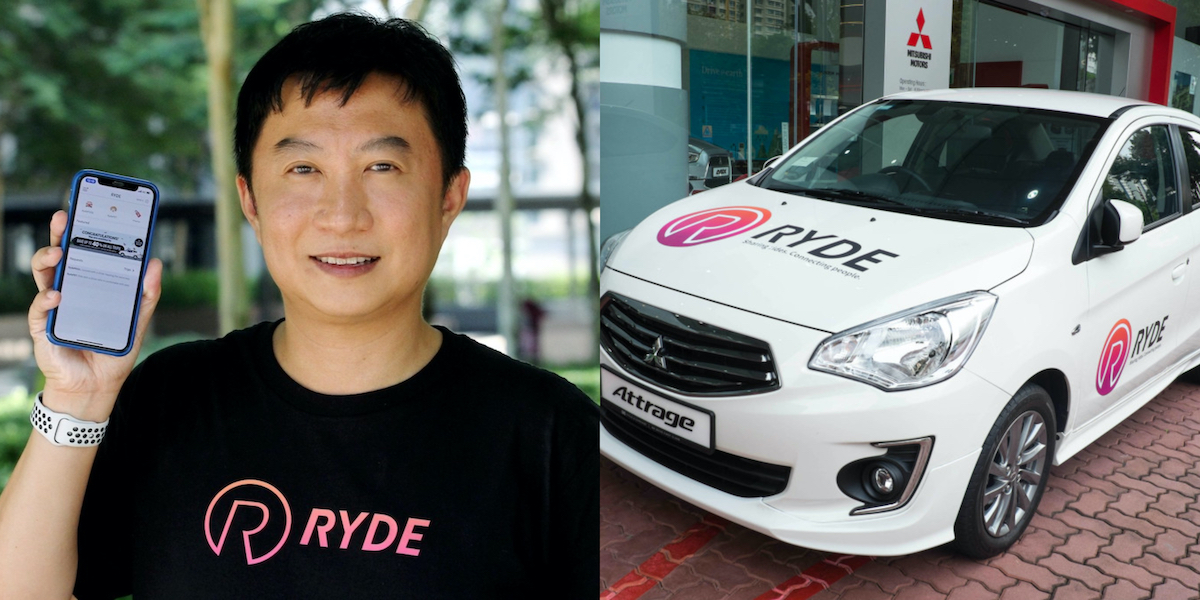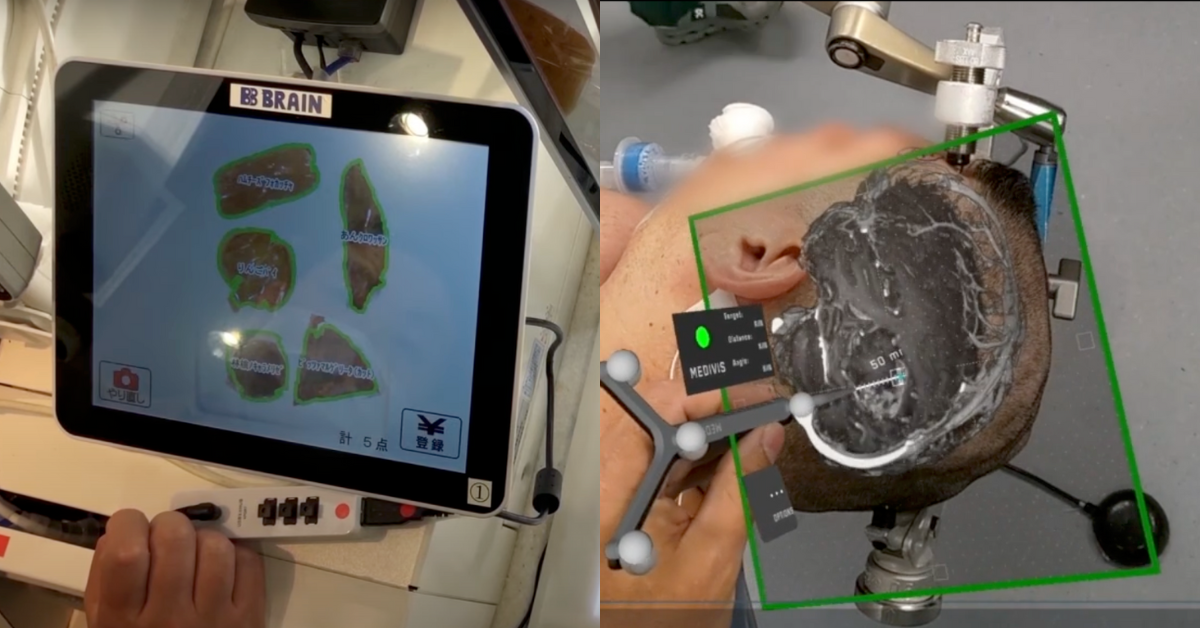When it comes to ride-sharing in Southeast Asia, Grab and Gojek are the names that first come to mind.
However, while Grab and Gojek are busily expanding their business empires across the region, there are other players that are carving out their own corners in this sector.
Singapore-based Ryde Technologies is one of them, and the startup is building a profitable business and staying true to its commitment to shape efficient mobility solutions in the city-state.
Founded in 2014 by Terence Zou, Ryde was a pioneer in digital carpooling in Singapore — two years before Grab rolled out a similar service, GrabHitch.
Fast forward to 2020. Ryde has raised US$9.5 million from several investors, including Shopee’s parent company Sea Group, which led two of Ryde’s funding rounds in 2016 and 2017.
The Beginnings Of Ryde

Ryde is Zou’s first entrepreneurial venture after he spent nearly ten years working in finance and investments.
The idea for this company came when Zou became fed up with how difficult it was to flag down a vacant taxi in Singapore’s busier areas.
There were about 30,000 taxis and 500,000 private cars in Singapore at that time. Carpooling would be the most efficient way for people to get from point to point at half the cost of the taxi, and it can help solve the traffic congestion and pollution problem in the city.
The idea [of carpooling] has been around for a while in many Southeast Asian countries, including Singapore and Malaysia, where the government tried to promote it since the 1970s. But no one made it work because the technology was not sufficient back then, and there was no smartphone and digital payment options. These two things are essential for carpooling to work.
– Terence Zou, founder of Ryde
Times have changed, and the requirements that Zou defined are commonplace now. All it took was the right people to tie them together, and many made the attempt.
But with Grab dominating ride-hailing in Singapore and Gojek coming into the picture in November 2018, there were doubts that more modest players like Ryde could survive.

That hasn’t stopped Zou from staying the course, and Ryde has introduced additional services, including a private-hire car service, a pet-friendly carpooling service called RydePet, and on-demand courier service RydeSend.
To date, Ryde has facilitated five million trips, and its app has been downloaded close to 700,000 times in Singapore.
Last year, the company booked US$21.5 million in gross merchandise volume and US$2.15 million in revenue.
Although Zou said the startup will keep its focus on Singapore, he’s still eyeing possibilities to take Ryde to new markets.
In October 2019, Ryde piloted operations in Kuala Lumpur, Hong Kong, and Sydney.
“We experiment with different things. We launched limited operations in foreign markets to get data and see how people respond to our product. When the time is right, we’ll push for regional expansion, but we’re not in a rush for that,” said Zou.
How Ryde Keeps Itself Financially Afloat
Zou doesn’t see giant players like Grab and Gojek as direct competitors as Ryde remains focused on providing mobility solutions, while other operators have diversified their business offerings by stepping into sectors like food delivery, financial services, and entertainment.
And a small team at Ryde means it can stay lean and cost-efficient, making it more resilient during unexpected but devastating events like the COVID-19 pandemic.
The crisis has reinforced my view. Despite the market slowdown, our financial situation is stronger than ever.
When many companies have to lay off their employees, we have been prudent because we didn’t over-hire before. Our core focus now is to work towards profitability.
– Terence Zou, founder of Ryde
With that said, Ryde has not been immune to the slowdown in business brought on by the pandemic.
The Singapore government suspended carpooling from April 7 to June 19 to reduce the chance of the disease spreading further within the city-state.
But just like their larger competitors, Ryde saw demand for delivery soar as people couldn’t leave their homes during the circuit breaker period. RydeSend orders have increased by 600%, and the startup also handled more bookings for private-car hires and taxi rides.

Ryde charges 10% in commission from driver-partners, half that of Grab. It doesn’t offer a car rental program, so drivers who sign up don’t need to worry that others may be receiving preferential treatment.
The lower take stems from how the company manages its money. Zou said Ryde doesn’t spend much on marketing and promotions, so the company can sustain itself even though it holds a relatively small market share.
“The business is very simple, we don’t own any assets or inventory; we only provide a platform that matches drivers and passengers. We take a 10% commission from every transaction so we can offer a lower price than other operators.”
“You also won’t find us on any billboard, as 70% of our customers come from referrals. The strategy of keeping our costs low helps us to stay nimble in the fight against the giants. Although we are small, we’re able to grow in a sustainable and organic way,” Zou said, indicating that Ryde aims to hit profitability this year.
Moreover, Ryde is poised to receive a ride-hailing service operator’s license under Singapore’s new regulatory framework for transportation, which will come into effect in October.
The new rules will forbid operators from forcing drivers into exclusive deals. This means drivers can provide services on multiple platforms, keeping additional channels of income open for them.
The startup is looking to raise about US$7.16 million in its current investment round, which is led by Singapore-based family office Octava and is expected to close by the third quarter this year, Zou said.
Ryde will utilise the new capital to ramp up digital marketing and explore new verticals related to mobility.
Jumping On The Crypto Bandwagon
As one of the first online carpooling services in Singapore, Ryde is also the first platform in the world that allows users to pay for rides using bitcoin.
This option went live on June 22. Through the RydePay e-wallet, users can convert their bitcoins into RydeCoins at market rates to pay for trips with zero transaction costs.

Cryptocurrency transcends borders, there is no government interference, and it runs on its own ledger that is blockchain technology.
I believe that cryptocurrency as a payment method will gradually gain market share, and we want to be the first to offer this service.
– Terence Zou, founder of Ryde
With this new offering, Ryde wants to reach a new set of customers.
Zou believes that many people are already familiar with and own bitcoins in Singapore, but there are few businesses that accept it as a form of payment.
“As a ride-hailing platform, we have a huge volume of transactions, so we can be the thought leader to allow bitcoin and cryptocurrency to come into mainstream use.”
Zou also believes that the pandemic is pushing people to be more cash-averse and use digital payments instead, presenting an opportunity for cryptocurrencies to gain practical usage.
Over the next nine months, Ryde may also introduce Ethereum as an additional payment option.
This article is part of KrASIA’s “Startup Stories” series, where the writers of KrASIA speak with founders of tech companies in South and Southeast Asia.
Featured Image Credit: The Star / Ryde








